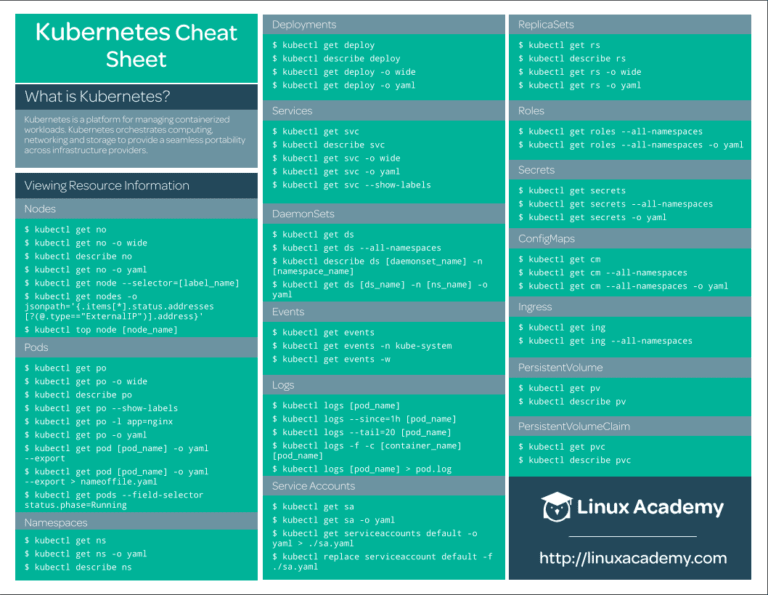May 29, 2020 May 29, 2020 This post will be used as a Ansible cheat sheet which has useful commands within Ansible with examples. Please scroll further down the Ansible cheat sheet if you are just looking for specific commands. Ansible¶ This is growing into a minimal Ansible reference of sorts, since Ansible’s own docs have nothing like a reference. List of keys that common playbook objects can take. Release tarballs. Ansible documentation for older releases. ANSIBLE CHEAT SHEET Learn DevOps from experts at edureka.co Ansible Architecture Inventory Files & Hosts Patterns Ad-Hoc Commands SSH Key Generation & Install Ansible What is Ansible? Ungrouped.example.com #An ungrouped host webservers #A group called webservers beta.example.com ansiblehost = 10.0.0.5 #ssh to 10.0.0.5. LZone Cheats Sheets. Ansible? Ansible Module. Apr 04, 2020 ansible, cheat sheets, Infrastructure as Code Ansible Cheat Sheet ec2.py examines the tags which were created by Terraform and executes a specific role based on the tag specified.
- Ansible Cheat Sheet
- Cheat Sheet Isaac
- Ansible Playbook Cheat Sheet
- Ansible Cheat Sheet Pdf
- Ansible Cheat Sheet Pdf

Iteration
Loops

If you have defined a YAML list in a variables file, or the ‘vars’ section, you can also do:
Ansible Cheat Sheet
Packages
Some plugins like, the yum and apt modules can take lists directly to their options, this is more optimal than looping over the task. See each action’s documentation for details, for now here is an example:

Note that the types of items you iterate over do not have to be simple lists of strings. If you have a list of hashes, you can reference subkeys using things like:
Also be aware that when combining Conditionals with a loop, the when: statement is processed separately for each item. See The When Statement for an example.
To loop over a dict, use the dict2itemsDict Filter:
Pick host from group:
Pass variables to playbook
Join a list
List ansible facts
Cheat Sheet Isaac
Only gather subset of facts
List hosts in inventory

Reliably get remote user name
ansible_user is used when we want to specifiy default SSH user in ansible hosts file whereas remote_user is used in playbook context: https://github.com/ansible/ansible/blob/c600ab81ee/lib/ansible/playbook/play_context.py#L46-L55
Ansible Playbook Cheat Sheet
Here is an example of using ansible_user in ansible hosts file:
Use {{ ansible_user_id }} to detect the user name on the remote machine that Ansible operates under even if you set become: true. For the become user, use {{ ansible_become_user }} instead (default=root)

Become when default sudo is unavailable
Ansible Cheat Sheet Pdf
List all Ansible hostvars
Playbook: hostvars.yml
Run it with:
Ansible Cheat Sheet Pdf
Helper scripts
Multi vault edit
Bad character finder
